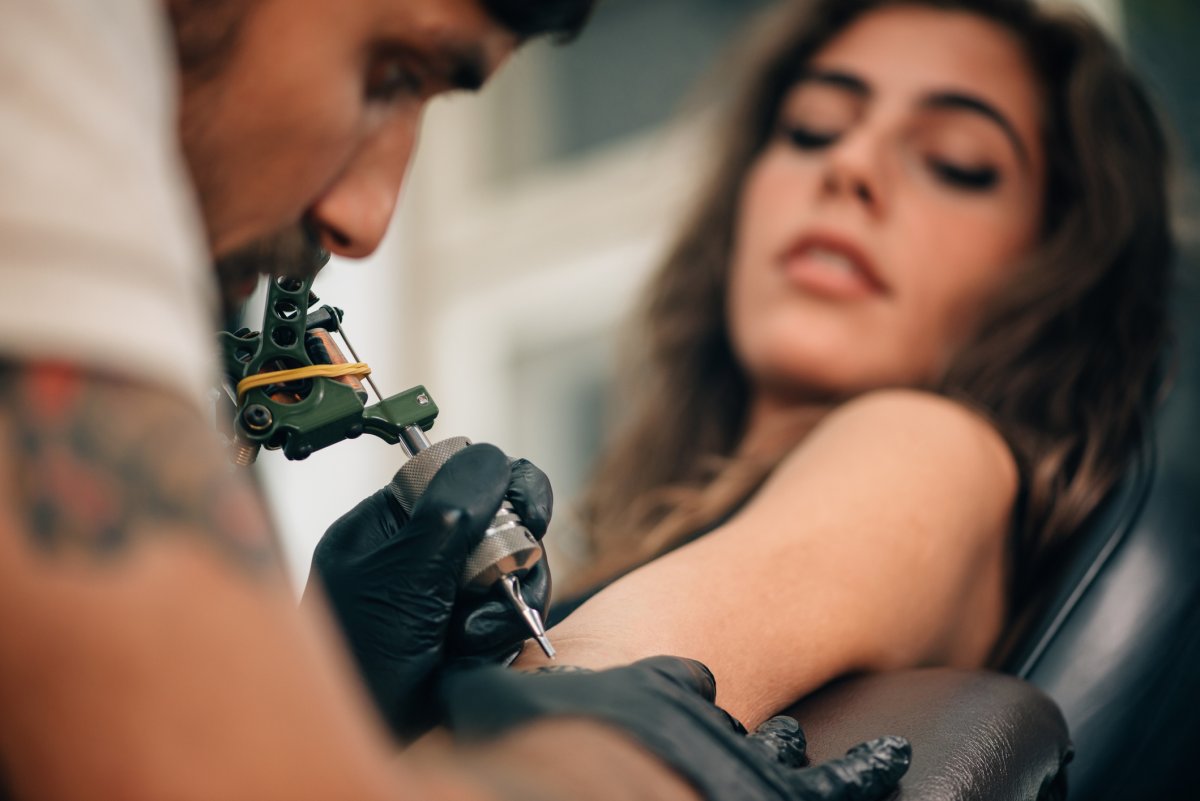What actually goes under your skin when you get a tattoo? Probably more than what's on the label, if new research is anything to go by.
Roughly one third of Americans have at least one tattoo, 2023 Pew Research Center surveys show. Between 1 and 5 percent of those who get a tattoo experience a tattoo-related skin infection, the National Institutes of Health estimate, which often results from contaminated equipment and tattoo ink. But another common complication is allergic reactions to the ink itself.
While state and local authorities oversee tattooing practices, the inks and pigments used in tattoos are classified as "cosmetics," and are therefore subject to less stringent requirements than most substances that would be injected under the skin. This lack of regulation increases the risk of allergen contaminants in the tattoo ink.

To explore the prevalence of ink contamination in the U.S., researchers from Binghamton University in New York analyzed 54 inks from nine popular manufacturers in America. Of these inks, 45 of them—more than 80 percent—had major discrepancies between the ingredients listed on the label and those in the bottle.
More than half of the products contained unlisted polyethylene glycol, which can cause organ damage after repeated exposure. Meanwhile, 15 products contained propylene glycol, which is a potential allergen.
It is not clear whether these unlisted ingredients were added intentionally, mislabeled on the products, or were accidental contaminants. Their study, published in the journal Analytical Chemistry, also only focused on substances present at concentrations of 2,000 parts per million or more, meaning that there may have been even more unlisted ingredients present at lower concentrations.
"We're hoping the manufacturers take this as an opportunity to reevaluate their processes and that artists and clients take this as an opportunity to push for better labeling and manufacturing," the study's senior author, John Swierk, said in a statement.
"Tattoo artists are serious professionals who have dedicated their lives to this craft, and they want the best possible outcomes for their clients. We're trying to highlight that there are some deficiencies in manufacturing and labeling."
Newsweek spoke to Selina Medina, director of research at the Alliance of Professional Tattooists Association, to learn more about how tattoo artists can be supported to practice safely.
"We represent a guild of tattoo artists in unison for safe practices of tattooing," Medina told Newsweek. "The Alliance for Professional Tattooing (APT) is advising artists to be aware of the potential mislabeling of their tattoo ink products. Risks associated with improper labeling can result in an allergic reaction, particularly if there are unlisted ingredients.
"The APT recommends that artists review the American Food and Drug Officials (AFDO) Labeling Guide for Tattoo Inks and Permanent Makeups to ensure the products they use are properly labeled in accordance with FDA packaging and labeling laws.
"Artists are also encouraged to stay informed about the new FDA regulations on tattoo inks, which are classified as cosmetics under the Modernizing Cosmetics Regulation Act (MoCRA). MoCRA aims to improve labeling, registration, and safety standards for cosmetics, including tattoo inks.
"The APT suggests that artists familiarize themselves with these changes through resources provided by the APT to stay informed and support their businesses and clients."
If you develop an infection or allergic reaction after getting a tattoo, the FDA recommends contacting your health care professional and notifying the tattoo artist. For infections, they also recommend asking for the brand, color and batch number of the ink and sending all of this information to the FDA for further investigation.
Is there a health problem that's worrying you? Do you have a question about tattoo inks? Let us know via health@newsweek.com. We can ask experts for advice, and your story could be featured on Newsweek.
Update 02/28/2024 12:55 ET: This article was updated to include a statement from Selina Medina.
Uncommon Knowledge
Newsweek is committed to challenging conventional wisdom and finding connections in the search for common ground.
Newsweek is committed to challenging conventional wisdom and finding connections in the search for common ground.
About the writer
Pandora Dewan is a Senior Science Reporter at Newsweek based in London, UK. Her focus is reporting on science, health ... Read more
To read how Newsweek uses AI as a newsroom tool, Click here.






